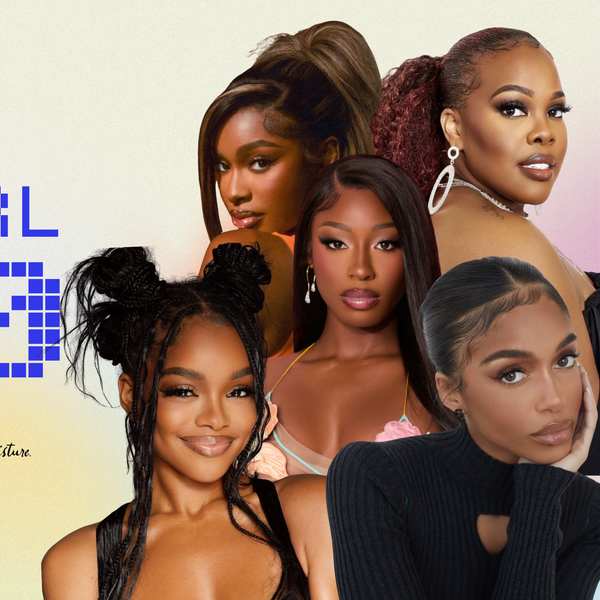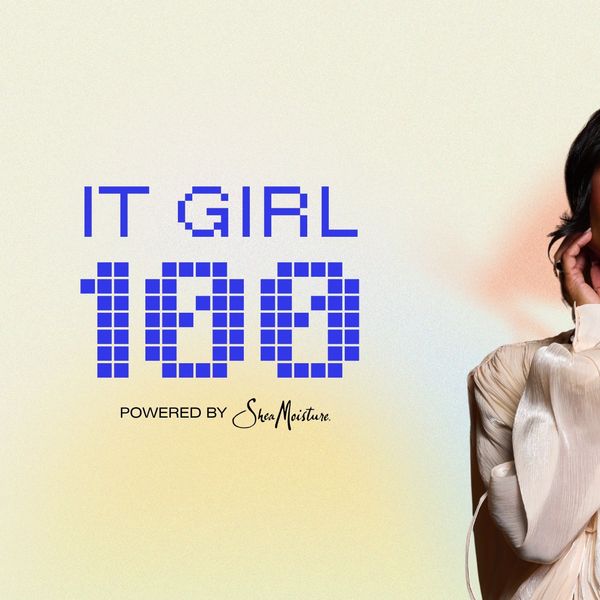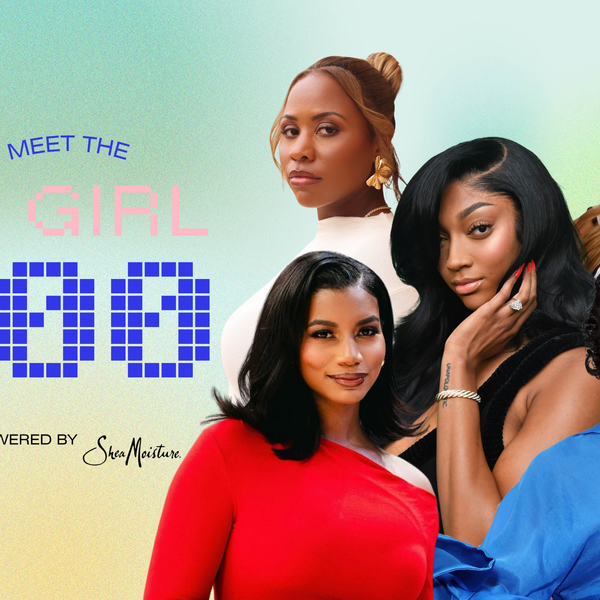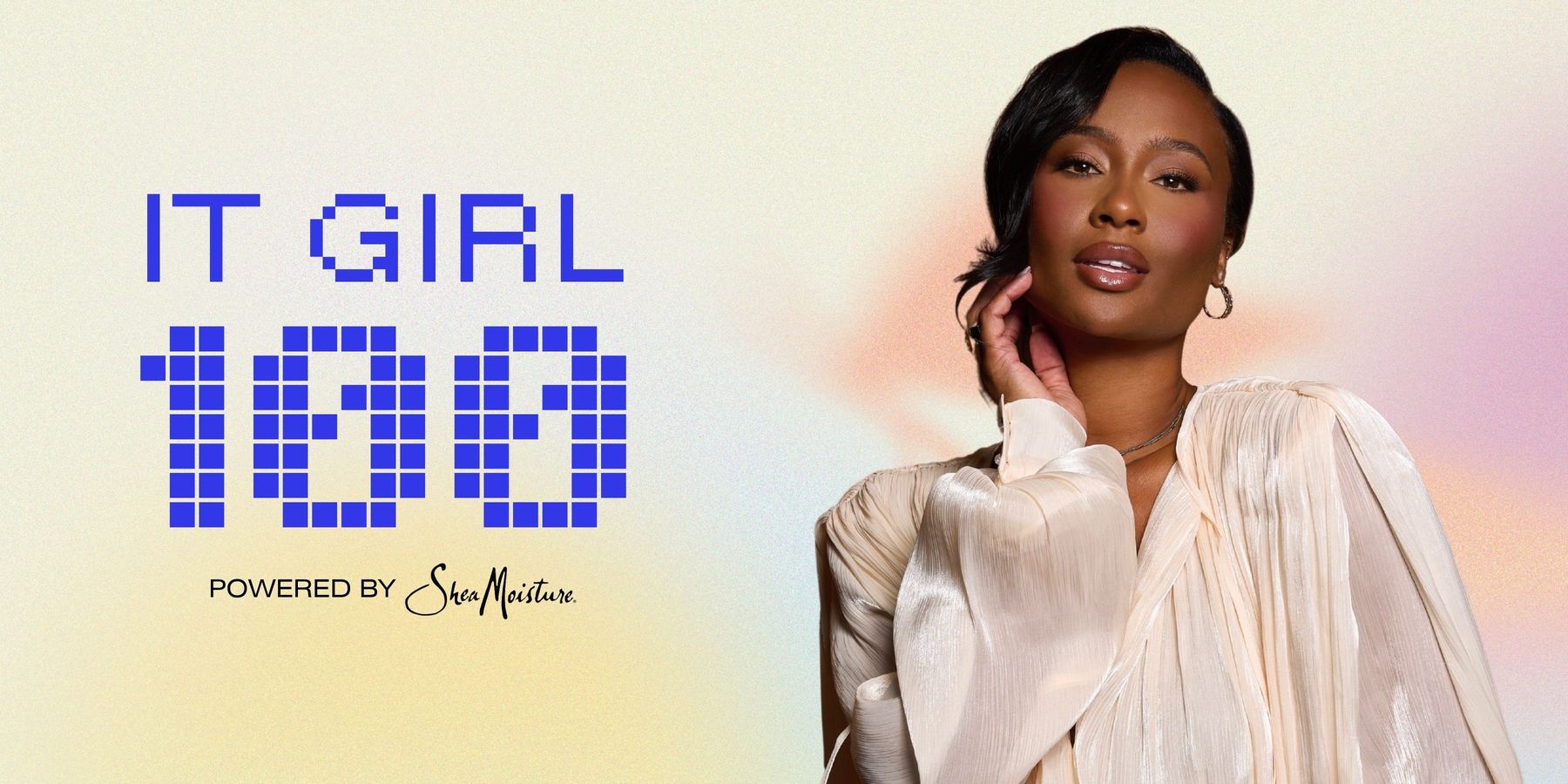How 10 Polyworking Celebs Are Building Multi-Million Dollar Net Worths
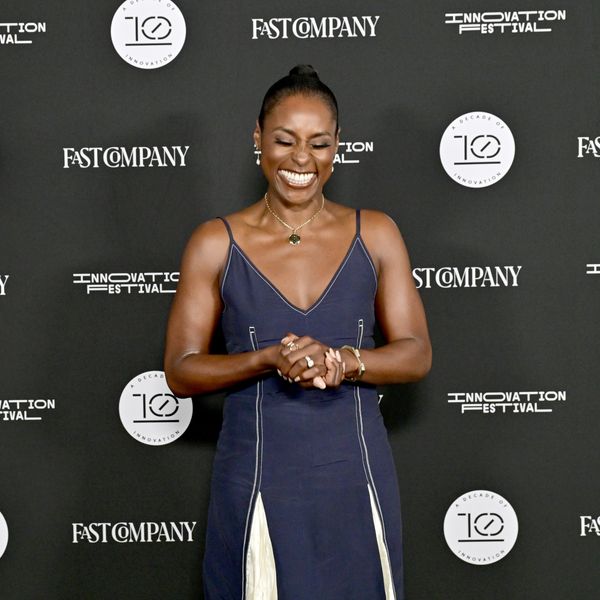
Gone are the days when celebrities were boxed into a single career lane. With industries evolving and financial realities shifting, many stars are embracing the polywork trend—building wealth and influence by wearing multiple hats.
Forbes reports, “Polyworking is a growing trend of managing multiple concurrent jobs rather than relying on a single source of income. It heralds a new phase in what has been known as the "portfolio career" or the practice of "slashers"—a concept introduced by Marci Alboher in her book, One Person, Multiple Careers.
Why Polyworking Is the Future
The entertainment industry is no longer just about mastering one craft. Shrinking profit margins (especially in music and acting) and the need for financial security have made it essential for celebrities—and everyday people—to pursue multiple streams of income. Polyworking isn’t just a buzzword; it’s a survival strategy for building wealth and staying relevant.
Take a cue from these stars and don’t be afraid to explore new lanes. Success today means being versatile, creative, and ready to pivot at a moment’s notice.
From acting and singing to launching businesses, here's how some of your favorite celebrities are thriving in diverse spaces:
1. Issa Rae: Multi-Hyphenate Mogul
Issa Rae has mastered the art of polyworking. Known for her groundbreaking TV series Insecure, Issa has expanded into other ventures, including her record label Raedio and, most recently, opening her new restaurant, Somerville, in South LA. In the Naked Beauty Podcast, she shared how wearing multiple hats allows her to express creativity while ensuring financial stability. Her journey proves you can balance art and entrepreneurship.
Back in 2020, Issa told Billboard, "Even from a young age, my mom used to call me bossy. Only now do I realize that I wanted to be that. I wanted to be a boss because, why the fuck not? I liked feeling like I was working or in business. I liked feeling like a leader. And it is not always fun, by any means, but there's an element of accomplishment that I feel in executing projects."
2. Chloe Bailey: The Musician Who Does It All
As one half of Chloe x Halle, Chloe Bailey is a vocal powerhouse. But with the reality of slim profit margins in music streaming, she's stepped back into acting (Swarm, Praise This) and has taken on a bevy of brand partnerships, including a recent one with Pandora. Chloe embodies the spirit of modern polyworking, leveraging her platform to diversify her income and creative reach.
3. Rihanna: From Music Icon to Beauty Billionaire
Rihanna might not be dropping albums as frequently as fans hope, but she’s dominating in other arenas. With Fenty Beauty, Savage X Fenty, and even her role as a mom, Rihanna exemplifies how pivoting into other industries can create lasting wealth. Polyworking has propelled her to billionaire status while redefining her legacy.
She told the New York Times that she knows what she brings to the table, and “knowing that the fashion industry has lacked inclusivity, she’s not planning to back down from being a young, Black woman new to the business.” Rihanna said, “Those factors do come into play, but I will not apologize for them, and I will not back down from being a woman, from being Black, from having an opinion. I do know that the reason I’m here is not because I’m black. It’s because of what I have to offer.” And she offers so much.
4. Donald Glover: The Quintessential Polymath
Donald Glover, aka Childish Gambino, wears multiple hats with ease. From acting (Atlanta, Community) to music and writing, he’s a perfect example of how polywork allows creatives to thrive. Glover’s diverse projects not only showcase his talent but also ensure he’s never reliant on a single stream of income.
Did you know he was also a farmer? He named his nascent company after Gilgamesh, the mythic Mesopotamian hero who angered the gods. “Gilga is like Erewhon for culture,” he told GQ. Donald went on to say, “I want to work with the best people in every medium. To work toward sustainable output. The culture we’re getting from our phones is not high quality. It can be really good sometimes. And fun. But not necessarily high quality. Gilga is the filter for all of that.”
5. Serena Williams: Ace on and off the Court
Serena Williams may have retired from tennis, but her polywork hustle is just beginning. Between Serena Ventures, her investment firm, her beauty brand, and fashion brand S by Serena, she’s proving that building wealth and legacy goes far beyond sports.
The mommy mogul shared on her website that being organized is her best thing. “It keeps me sane and helps me feel like I have some control over a very full life. Tennis is a big part of my life, but I’ve also been dedicating more time and energy to my other passions lately.”
6. Zendaya: Star of the Screen and Beyond
Zendaya’s acting chops (Euphoria, Dune) are unmatched, but she’s also taken on roles as a producer, brand ambassador, and fashion icon. By leveraging her platform across industries, she’s a textbook example of using polywork to establish generational wealth.
We are also waiting for the day she decides to really model because it’s gonna be over for the girls.
When it comes to new projects, the Euphoria star is being the most intentional these days. She told Vogue, “As I get older, I want to be more intentional about the things that I choose to do with my time and the brands I work with. I’ve been approached by similar sports-related brands and, no slight to any of them, there’s just this feeling of openness and care [with On]. They’re already doing the work—I don’t have to tell them to make it more inclusive or more meaningful—they are already doing that. It inspires me; I want to support what they’re doing.”
7. Beyoncé: The Ultimate Multi-Hyphenate
Queen Bey’s artistry is unparalleled, but her ventures like Ivy Park and her groundbreaking "Renaissance World Tour" show how she combines music with business savvy. Her polyworking ensures her influence goes beyond the stage and into fashion, tech, and philanthropy.
Since she’s been at it for decades, she’s had to revisit the blueprint. “There was a time when I was pushing myself to meet unrealistic deadlines, while not taking the time to enjoy the benefits of why I was working so hard,” Beyoncé told GQ. “There aren’t many of us from the late ’90s who were taught to focus on mental health. Back then, I had little boundaries, and said yes to everything ... And now I work smarter.”
8. Tracee Ellis Ross: From Acting to Entrepreneurship, Mastering Multiple Lanes
Tracee Ellis Ross, known for her role on Black-ish, has found success beyond acting with Pattern Beauty, a hair care line designed for textured hair. Ross's goal was to create products that support and celebrate the natural beauty of textured hair.
In an interview with PEOPLE, the founder of Pattern Beauty emphasized the importance of meticulous planning and organization in presenting one's best self. According to Ross, setting up her Pattern headquarters necessitates "mapping out with military precision" to ensure a successful and effective operation. “That is perhaps both an escape and a defense mechanism, and also how I get it all done. But I take the moments: what I call it is being mindful and slow between A and B. So instead of rushing between things, I really allow myself to be present between them.”
9. La La Anthony: Breaking Barriers and Building Empires
La La Anthony, who started as a VJ on MTV's Total Request Live, has expanded her career significantly. Now, she's not only an actor and producer known for roles in Power and Think Like a Man, but also a successful entrepreneur. In 2022, she launched Inala, an award-winning haircare brand.
When talking with The Cut about how she gets it done, La La said, “It’s great to show people that you can do more than one thing, but the challenge is that people often only see you as one thing. So if you’re a radio personality, they only want to see you as that; if you’re a TV personality, they only want to see you as that. I’m all about breaking barriers down and showing people that you can not only be more than one thing — and you can be good at more than one thing. It’s possible. No one should put you in a box.”
10. Keke Palmer: A Masterclass in Balancing Passion and Opportunity
Now, they don't call this former child star Keke "Keep a Job" Palmer for no reason. The 31-year-old has been making polywork work way before wearing multiple hats was as much of a thing. From her breakout role as an actress in Akeelah and the Bee to numerous hosting gigs, including a history-making one as the youngest person to host a talk show with Just Keke at the age of 20.
Making history is just a prerequisite for Keke's polywork success over the years. She even earned an Emmy for her work as a host for the game show Password in 2023, becoming the first Black woman to do so.
When she isn't being a mom, Keke is producing for her digital network KeyTV, acting as a podcaster for her hit podcast Baby, This Is Keke Palmer, being 1/3 of girl group DivaGurl, and even more recently, has added author to her ever-expanding resume with her memoir, Master of Me: The Secret to Controlling Your Narrative. "It’s not just about doing it all," Keke shared with Variety. "It’s about doing it all in a way that feels authentic to you."
Next up for the multihyphenate is One of Them Days alongside SZA, hitting theaters on January 17.
Let’s make things inbox official! Sign up for the xoNecole newsletter for love, wellness, career, and exclusive content delivered straight to your inbox.
Featured image by Eugene Gologursky/Getty Images for Fast Company
Exclusive: Viral It Girl Kayla Nicole Is Reclaiming The Mic—And The Narrative
It’s nice to have a podcast when you’re constantly trending online. One week after setting timelines ablaze on Halloween, Kayla Nicole released an episode of her Dear Media pop culture podcast, The Pre-Game, where she took listeners behind the scenes of her viral costume.
The 34-year-old had been torn between dressing up as Beyoncé or Toni Braxton, she says in the episode. She couldn’t decide which version of Bey she’d be, though. Two days before the holiday, she locked in her choice, filming a short recreation of Braxton’s “He Wasn’t Man Enough for Me” music video that has since garnered nearly 6.5M views on TikTok.
Kayla Nicole says she wore a dress that was once worn by Braxton herself for the Halloween costume. “It’s not a secret Toni is more on the petite side. I’m obsessed with all 5’2” of her,” she tells xoNecole via email. “But I’m 5’10'' and not missing any meals, honey, so to my surprise, when I got the dress and it actually fit, I knew it was destiny.”
The episode was the perfect way for the multihyphenate to take control of her own narrative. By addressing the viral moment on her own platform, she was able to stir the conversation and keep the focus on her adoration for Braxton, an artist she says she grew up listening to and who still makes her most-played playlist every year. Elsewhere, she likely would’ve received questions about whether or not the costume was a subliminal aimed at her ex-boyfriend and his pop star fiancée. “I think that people will try to project their own narratives, right?” she said, hinting at this in the episode. “But, for me personally – I think it’s very important to say this in this moment – I’m not in the business of tearing other women down. I’m in the business of celebrating them.”
Kayla Nicole is among xoNecole’s It Girl 100 Class of 2025, powered by SheaMoisture, recognized in the Viral Voices category for her work in media and the trends she sets on our timelines, all while prioritizing her own mental and physical health. As she puts it: “Yes, I’m curating conversations on my podcast The Pre-Game, and cultivating community with my wellness brand Tribe Therepē.”
Despite being the frequent topic of conversation online, Kayla Nicole says she’s learning to take advantage of her growing social media platform without becoming consumed by it. “I refuse to let the internet consume me. It’s supposed to be a resource and tool for connection, so if it becomes anything beyond that I will log out,” she says.
On The Pre-Game, which launched earlier this year, she has positioned herself as listeners “homegirl.” “There’s definitely a delicate dance between being genuine and oversharing, and I’ve had to learn that the hard way. Now I share from a place of reflection, not reaction,” she says. “If it can help someone feel seen or less alone, I’ll talk about it within reason. But I’ve certainly learned to protect parts of my life that I cherish most. I share what serves connection but doesn’t cost me peace.
"I refuse to let the internet consume me. It’s supposed to be a resource and tool for connection, so if it becomes anything beyond that I will log out."

Credit: Malcolm Roberson
Throughout each episode, she sips a cocktail and addresses trending topics (even when they involve herself). It’s a platform the Pepperdine University alumnus has been preparing to have since she graduated with a degree in broadcast journalism, with a concentration in political science.
“I just knew I was going to end up on a local news network at the head anchor table, breaking high speed chases, and tossing it to the weather girl,” she says. Instead, she ended up working as an assistant at TMZ before covering sports as a freelance reporter. (She’s said she didn’t work for ESPN, despite previous reports saying otherwise.) The Pre-Game combines her love for pop culture and sports in a way that once felt inaccessible to her in traditional media.
She’s not just a podcaster, though. When she’s not behind the mic, taking acting classes or making her New York Fashion Week debut, Kayla Nicole is also busy elevating her wellness brand Tribe Therepē, where she shares her workouts and the workout equipment that helps her look chic while staying fit. She says the brand will add apparel to its line up in early 2026.
“Tribe Therepē has evolved into exactly what I have always envisioned. A community of women who care about being fit not just for the aesthetic, but for their mental and emotional well-being too. It’s grounded. It’s feminine. It’s strong,” she says. “And honestly, it's a reflection of where I am in my life right now. I feel so damn good - mentally, emotionally, and physically. And I am grateful to be in a space where I can pour that love and light back into the community that continues to pour into me.”
Tap into the full It Girl 100 Class of 2025 and meet all the women changing game this year and beyond. See the full list here.
Featured image by Malcolm Roberson
If there is one thing that I am going to do, it’s buy myself some scented soy candles. And, as I was looking at a display of them in a TJ Maxx store a couple of weekends ago, I found myself wondering just who decided which scents were considered to be “holiday” ones. The origin stories are actually pretty layered, so, for now, I’ll just share a few of ‘em.
I’m sure it’s pretty obvious that pine comes from the smell of fresh Christmas trees; however, scents like cloves, oranges, and cinnamon are attributed to two things: being natural ways to get well during the cold and flu season, and also being flavors that are used in many traditional holiday meals.
Meanwhile, frankincense and myrrh originate from the Middle East and Africa (you know, like the Bible does — some folks need to be reminded of that—eh hem — Trumpers) and ginger? It too helps with indigestion (which can definitely creep up at Thanksgiving and Christmas dinner tables); plus, it’s a key ingredient for ginger snaps and gingerbread houses. So, as you can see, holiday-themed scents have a rhyme and reason to them.
Tying this all in together — several years ago, I penned an article for the platform entitled, “Are You Ready To Have Some Very Merry ‘Christmas Sex’?” Well, in the spirit of revisiting some of that content, with a bit of a twist, I decided to broach some traditional holiday scents from the perspective of which ones will do your libido a ton of good from now through New Year’s Eve (check out “Make This Your Best NYE. For Sex. EVER.”).
Are you ready to check some of them out, so that, whether it’s via a candle, a diffuser, some essential oil, or some DIY body cream (check out “How To Incorporate All Five Senses To Have The Best Sex Ever”), you can bring some extra festive ambiance into your own boudoir? Excellent.
1. Vanilla
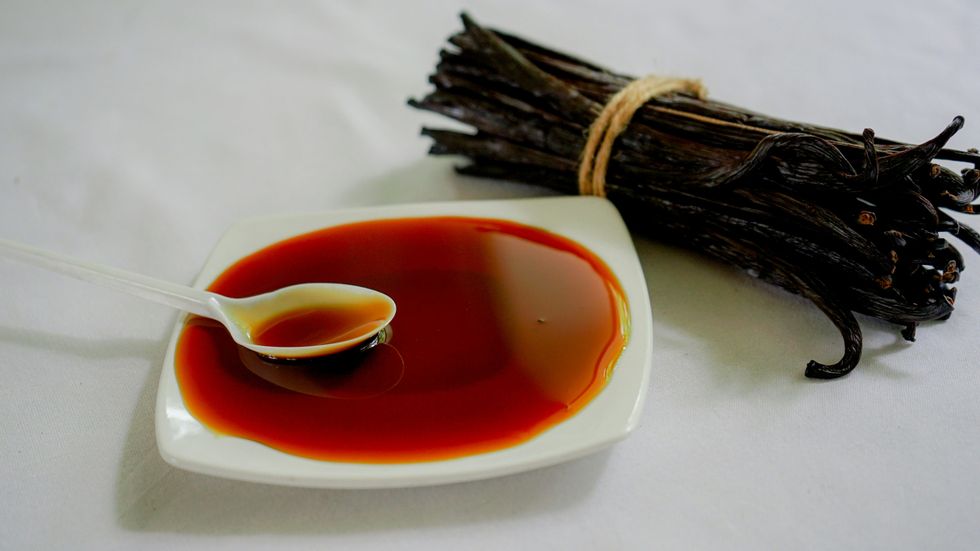
Unsplash
When it comes to holiday desserts, you’re going to be hard-pressed to find recipes that don’t include vanilla — and that alone explains why it is considered to be a traditional holiday scent. As far as your libido goes, vanilla is absolutely considered to be an aphrodisiac — partly because its sweet scent is considered to be very sensual. Some studies even reveal that vanillin (the active ingredient in vanilla) is able to increase sexual arousal and improve erectile dysfunction in men. So, if you adore the smell, here is more incentive to use it.
2. Frankincense

Unsplash
Although, typically, when people think about frankincense (and myrrh), it’s in the context of the gifts that the wise men brought Christ after he was born; it’s a part of the biblical Christmas story. However, frankincense goes much deeper than that. Sexually, since it has an earthy and spicy scent, some people like to use it to meditate (check out “What Exactly Is 'Orgasmic Meditation'?”). Also, since it has the ability to put you in a better mood, soothe and soften your skin and maintain your oral health — with the help of frankincense, every touch and kiss can be that much…sexier.
3. Cinnamon
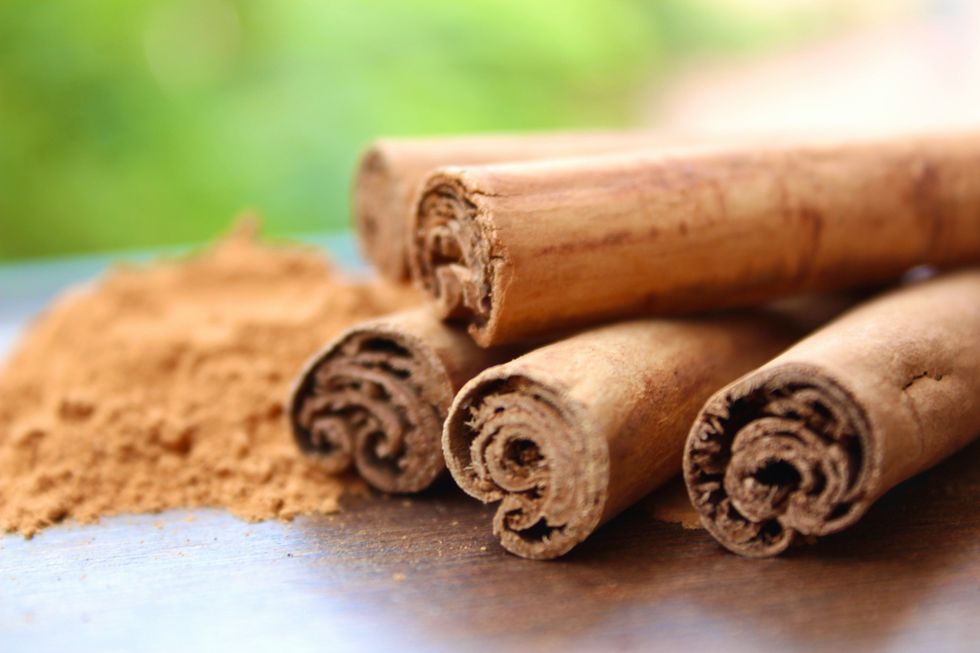
Unsplash
I already gave cinnamon a shout-out in the intro. Personally, I’ve been a fan of it, in the sex department, for a long time now (check out “12 ‘Sex Condiments’ That Can Make Coitus Even More...Delicious”). When it’s in oil form, it can be very sweet to the taste while sending a warm sensation throughout the body — which is why the giver and receiver of oral sex can benefit from its usage. Beyond that, cinnamon helps to increase blood flow to your genital region, elevate sexual desire and, some studies say that it can even help improve fertility. Beautiful.
4. Peppermint
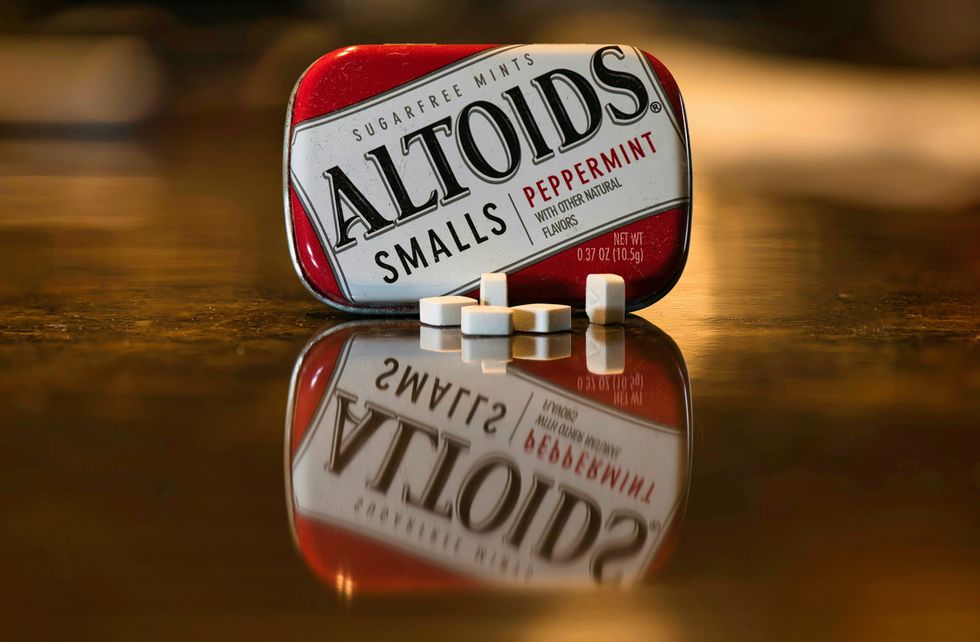
Unsplash
If there’s a signature candy for the holiday season, it’s probably a candy cane — which automatically puts peppermint in the running for being an official holiday scent. Pretty much, in any form, it’s got your sex life’s back because it’s hailed as being a sexual stimulant; in part, because its smell is so invigorating. Plus, it helps to (eh hem) ease headaches, it gives you more energy and it can definitely help to freshen your breath. Also, that minty sensation? The same thing that I said about cinnamon can apply to peppermint too (if you catch my drift).
5. Ginger

Unsplash
Whether it’s in a meal or in your bedroom, ginger is going to produce results that are hella spicy. On the sex tip, science has praised ginger for being able to increase sexual arousal, improve blood circulation (which intensifies orgasms) and strengthen fertility for many years. Scent-wise, I find it to be one that both men and women enjoy because it is both woodsy and sweet. So, if you’ve got some massage oil in mind, adding some ginger is a way to please you both.
6. Pomegranate
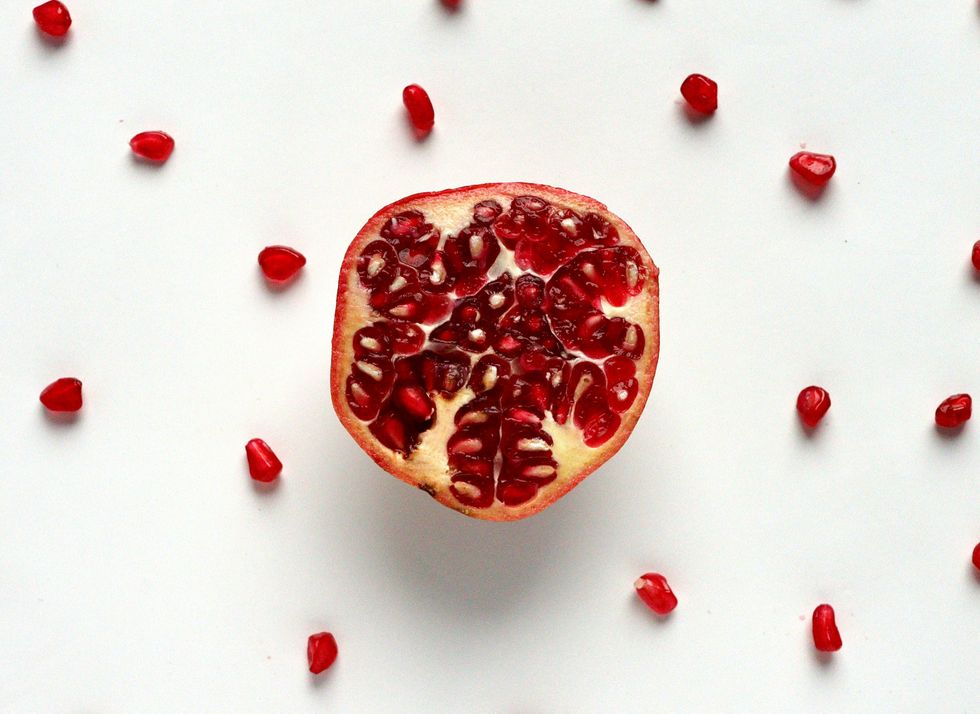
Unsplash
September through December is the time of year when pomegranates are considered to be in season. And, as someone who is a Rosh Hashanah observer, I have a personal adoration for them because I am aware of the various things that they symbolize in Hebrew culture including the fact that they are a fruit that represents love and fertility. So yeah, they would absolutely be an aphrodisiac — one that is perfect for this time of the year. While consuming it helps to boost testosterone levels in both men and women, the floral bittersweet smell that it produces can help to reduce stress while promoting relaxation (like most floral scents do) — and the more relaxed you are, the easier it is to climax.
7. Nutmeg
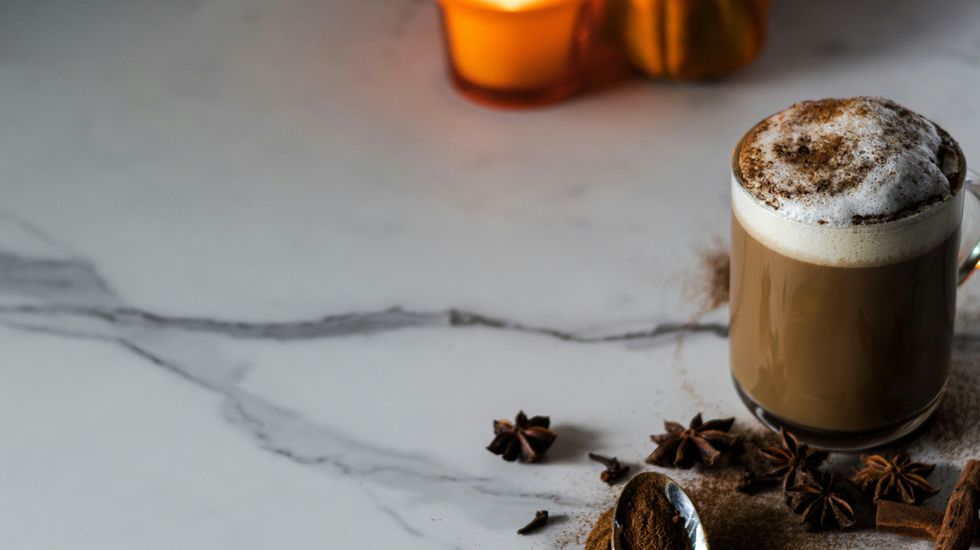
Unsplash
Another signature seasoning during the holiday season is nutmeg. It’s perfect in Thanksgiving sweet potato (or pumpkin) pie and Christmas morning French toast. And yes, it can also make your sex life better. If you consume it, it can intensify your libido and, overall, its warm-meets-spicy-meets-sweet smell is so inviting that it is considered to be a pretty seductive scent.
8. Cloves
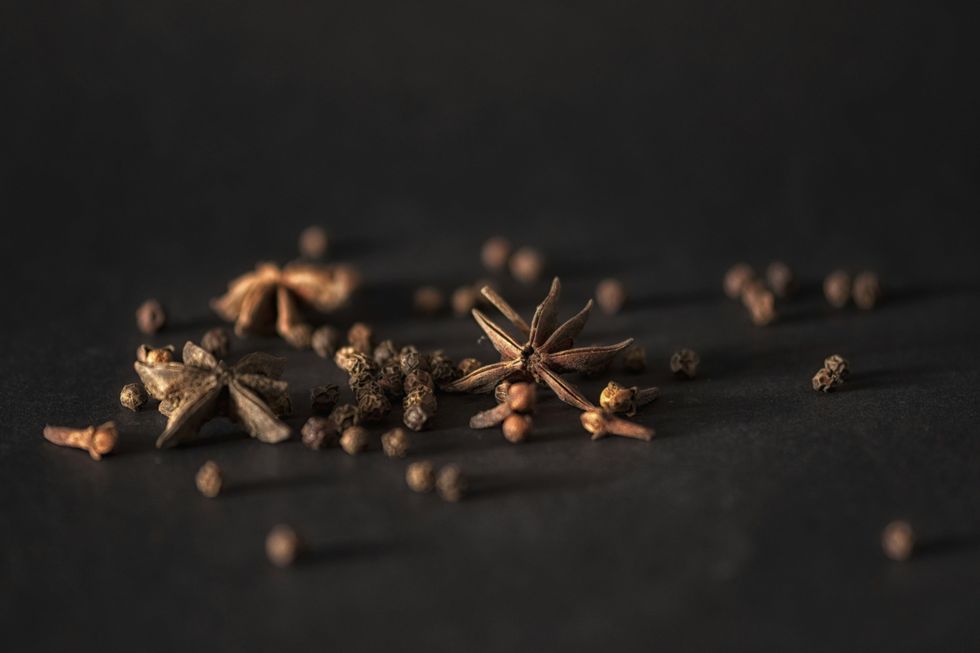
Unsplash
I ain’t got not one lie to tell you — if you’ve got a toothache, put some clove oil on that bad boy and send me a Christmas present for putting you on game. Aside from that, as I round all of this out, cloves are another holiday scent that can do wonders for your sex life. For men, it has the ability to significantly increase sexual arousal and improve stamina and endurance. For men and women alike, it also has a reputation for strengthening sexual desire. And for women solely? Well, if you want an all-natural way to increase natural lubrication down below — the scent and and feel (in DILUTED oil form) can make that happen. It can make the holidays especially special…if you know what I mean.
Ah yes — the atmosphere of the holidays and what it can do.
Take it all in! Scent ‘n whatever stimulating that comes with it! #wink
Let’s make things inbox official! Sign up for the xoNecole newsletter for love, wellness, career, and exclusive content delivered straight to your inbox.
Featured image by Giphy



